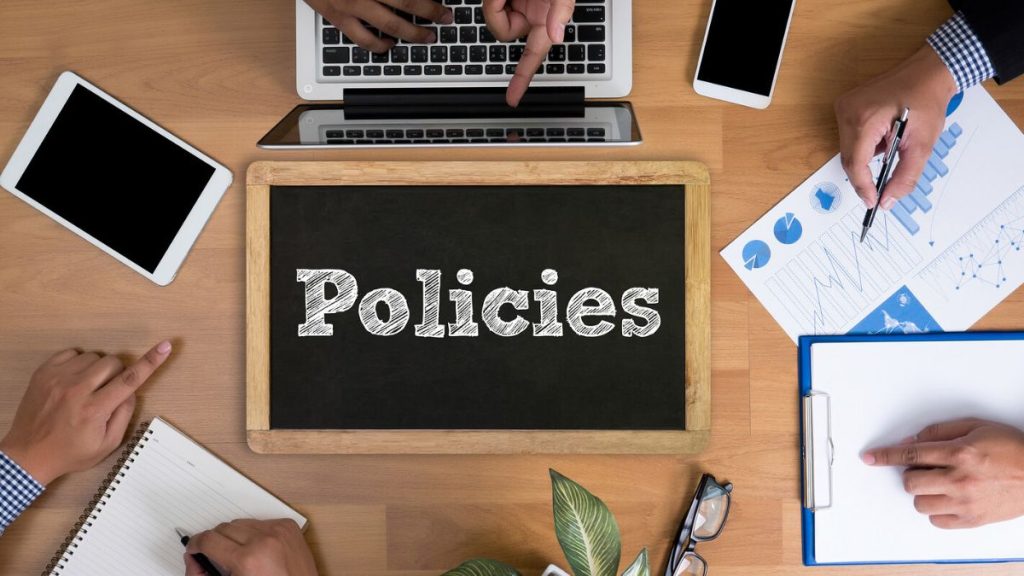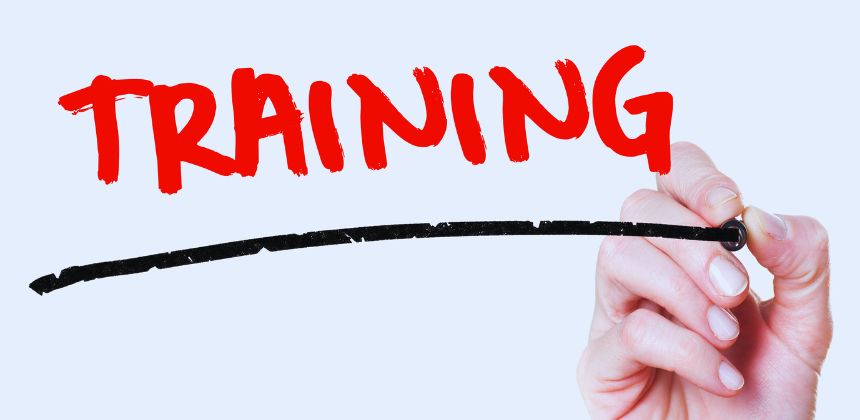
Table of Contents
ToggleIn this edition:-
- The importance of using conflict resolution in policies
- Top Tips
- Membership update
- Meet the Team
- Upcoming Training & Events

The importance of using conflict resolution in policies
Introduction
Neighbourhoods are the building blocks of society, where diverse individuals and families come together to form communities. While such diversity enriches communities, it also brings challenges in the form of differing perspectives, interests, and goals. To ensure harmony and sustainable community development, it is crucial for neighbourhood management policies to include robust conflict resolution mechanisms. This document explores the multifaceted reasons why conflict resolution should be a cornerstone of any neighbourhood management policy and the benefits it brings to the community.
Understanding Conflict Resolution
Conflict resolution refers to the process of addressing disputes, disagreements, or grievances between parties in a constructive manner. It involves identifying the sources of conflict, facilitating dialogue, and arriving at mutually agreeable solutions. This proactive approach is more than a solution-focused strategy—it is a means to prevent potential escalations and foster trust among community members.
Key Principles of Conflict Resolution:
- Transparency: Open and honest communication ensures that all parties feel heard and understood.
- Neutrality: Impartial mediation allows for unbiased solutions that satisfy all involved parties.
- Collaboration: A cooperative approach encourages participants to work together toward a shared resolution.
Why Conflict Resolution is crucial in Neighbour Management Policies
Ensuring Peaceful Coexistence
Neighbourhoods often consist of individuals from varying cultural, social, and economic backgrounds. This diversity, while enriching, can sometimes lead to misunderstandings or disputes. By incorporating conflict resolution into neighbourhood management policies, communities can address differences constructively, fostering an environment where peaceful coexistence thrives.
Preventing Escalation of Disputes
Small disagreements can quickly escalate into larger conflicts if left unaddressed. For instance, disputes over noise levels, parking spaces, or property boundaries can grow into significant issues affecting community relations. A conflict resolution policy provides a structured framework to address these disputes promptly before they spiral out of control.
Strengthening Community Bonds
Resolving conflicts, if left unchecked, may lead to instances of aggression or violence, compromising the safety of residents. A conflict resolution framework ensures disputes are handled peacefully and effectively, reducing the likelihood of such risks.
Encouraging Civic Engagement
When residents see that their community prioritises constructive dialogue and resolution, they are more likely to participate in communal activities and decision-making processes. Conflict resolution policies signal that everyone’s voice matters, inspiring greater resident engagement.
Key Components of a Conflict Resolution Policy
A successful neighbourhood management policy should include the following components to address conflicts effectively:
Community Mediation Programmes
Establishing mediation programmes led by trained professionals offers a neutral platform for resolving disputes. Mediators can guide residents toward mutually beneficial solutions while maintaining fairness and transparency.
Consensus-Building Activities
Workshops, discussions, and community meetings designed to build consensus can proactively address potential points of contention. These activities foster understanding and cooperation among residents.
Accessible Complaint Mechanisms
Ensuring that residents have easy access to channels where they can voice their concerns is essential. Complaint mechanisms should be straightforward, confidential and responsive.
Conflict Prevention Strategies
Conflict resolution is not solely about addressing existing disputes—it’s also about preventing new ones. Education programmes focusing on communication skills, cultural awareness, and problem-solving techniques can preclude many issues.
Case Studies: Success Stories
Neighbourhoods that have successfully implemented conflict resolution policies often report increased harmony and collaboration. For example:
Greenfield Neighbourhood Initiative
The Greenfield community introduced a mediation programme to address disputes over shared spaces. By facilitating discussions and providing unbiased mediators, conflicts over playground use and parking were resolved amicably, improving overall community relation
Urban Harmony Project
An urban neighbourhood implemented regular consensus-building meetings to discuss developmental challenges. This initiative allowed residents to collaboratively design solutions for concerns such as waste management and zoning, resulting in smoother implementation of policies.
Conclusion
Conflict resolution is a vital component of neighbourhood management policies, ensuring that communities remain inclusive, harmonious, and resilient. By addressing disputes constructively, fostering collaboration, and promoting empathy, such policies contribute to the overall well-being and development of the neighbourhood. It is not merely a tool for managing disagreements—it is a foundation for building stronger, safer, and more engaged communities. As neighbourhoods continue to evolve, the inclusion of conflict resolution strategies will remain imperative for their success.

Top Tips to encourage customers to engage in mediation
The term mediation can sometimes appear scary to customers, whether it’s a misunderstanding about what mediation actually is, or fear that they will have to be in a room alone with their neighbour, or that they won’t have their chance to speak and put their point across.
Whatever the reasons for a customer being reluctant to engage in mediation we have listed some top tips to try and get them to open up and start the process of communication.
- Use open ended questions when speaking to the customers
- Get them to take ownership of the situation
- Encourage them to resolve their own disputes
- If they won’t do mediation, consider alternatives such as conflict coaching
- Avoid using the term ‘mediation’, use alternative language such as ‘a conversation with an independent support agency who will listen to your side of the story’
It’s ok if you feel someone isn’t ‘ready’ for mediation yet, at ADR we have a team of multi skilled individuals who work with the customer to fully understand their situation. Conflict coaching or 1-2-1 coaching has become increasingly beneficial prior to mediation to support the customer.
Conflict Coaching is a process that helps individuals gain clarity and develop strategies to manage and resolve conflicts in 4 easy steps:
- Understanding
- Learning
- Action
- Reflection
How people can benefit
- Exploration of a past conflict
- Working through strategies to manage a current conflict
- Pre, during or post mediation
- Preparation for a difficult conversation
- Understanding reactions, thoughts and feelings to identify options for future conflict
- If only 1 party is willing to mediate

Membership Launch is Nearly Here!
We are almost ready to welcome our very first members into our exciting new membership on 2nd June! Packed with on-demand, live and exclusive content, it’s not too late to register to be a founding member.
For all the information on the membership plus sign-up links visit:
Individual Membership
Organisation Membership

Meet the Team – Cathy, Conflict Resolution Specialist
Since beginning my journey in 1996 as an Anti-Social Behaviour (ASB) Officer for a local authority, I have amassed nearly three decades of expertise in ASB management, enforcement, and mediation, with an unwavering focus on improving the quality of life for residents and addressing the root causes of conflict.
With a background in housing, tackling tenancy-related nuisance and anti-social behaviour I have developed an ability to manage complex cases while ensuring that residents’ voices are heard and respected.
One of the most rewarding aspects of my career has been my involvement in mediation. As a specialist in conflict resolution, I have successfully mediated disputes to enable those involved in conflict to transform challenging situations into pathways for peace. I am passionate about ensuring that I deliver Mediation in a professional and positive way listening, using empathy, connecting, and assisting the parties involved to resolve their conflict.
For me, mediation involves actively listening and creating a non-judgmental space for individuals to share their experiences, understand each other, and develop conflict resolution skills for future use.
What I still love, all these years later, is the chance to make a real difference to people’s lives. That moment when someone says, “thank you, you’ve listened.” It never stops meaning something.
Outside of work, I am married to Alan, we have three children and three granddaughters, and we love spending time together as a family. We are lucky to live on the outskirts of Leeds where we have the beautiful North York moors, and the Yorkshire Dales close by where I enjoy cycling and walking. I recently cycled almost 600 miles in 7 days across France for a charity dedicated to creating memorable holiday experiences for adults and children with disabilities. Alan and I are volunteers for the charity, it is a cause close to our hearts and seeing the joy and freedom these holidays bring to the participants was worth the pain!

Upcoming Training & Events
We’ve got a packed training programme for 2025, including free sessions, webinars, accredited courses and much more. Register for your place today:
- 16th June, Restorative Practice Level 1 for Education
- 8th July, Restorative Practice Level 1 for Criminal Justice
- 21st July, Restorative Circles
- 16th – 23rd September, OCN Accredited Mediation Training
Enquire for dates or in-house training
- Harmony on the Frontline
- Mediation Refresher
- Preparing for Challenging Conversation
To find out more about our training or to make suggestions about what else you would like us to include in our training programme, please get in touch and share your thoughts. Message us here.
The post Welcome to our Newsletter – Edition 3, May 2025 appeared first on ADR Mediation & Training.